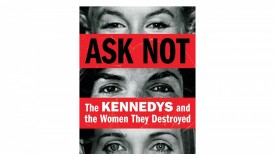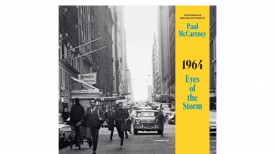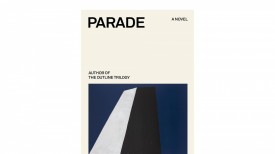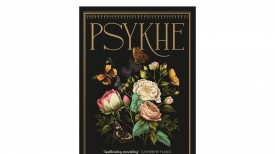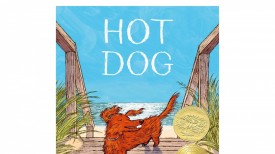‘The Language of War’ by Oleksandr Mykhed Book Review: A Raw Account of Life in Ukraine's Conflict

Discover the power of war through Oleksandr Mykhed's compelling book. Read our review of "The Language of War" and dive into this impactful literary masterpiece!(Photo : Amazon/Oleksandr Mykhed)
"The Language of War" by Oleksandr Mykhed is a raw, moving, and deeply personal look at how everyday life can suddenly become a war. Written during Russia's invasion of Ukraine, it tells the story of Mykhed's journey from living in the suburbs in peace to being on the front lines of a war that has changed his life.
Mykhed shows the huge difference between his life before the war and the following chaos. He and his wife, Olena, lived in a quiet area in Europe. They liked brunch, cooking with friends, and walking their dog. When the attack started, this peace was broken. Mykhed's story shows how quickly routine can be turned upside down, putting regular people in extraordinary situations.
The book not only discusses the damage to property but also the deep psychological effects of the attack. In Mykhed's stories, there are always the sounds of helicopters, the smell of gunpowder, and the fear of violence. He struggles with the new language of war, which becomes his only way of making sense of the world around him. This change is a key theme.
A Chronicle of Rage and Resilience
Mykhed's writing is full of anger, love for his home country, and a need for justice. The fury with which he writes about his experiences shows how strongly he feels. Other war stories might give a more complex or even funny view, but Mykhed's tone is angry and bitter. He writes about war crimes, the damage to his home, and the deep sadness that permeates everyday life. The fact that he will not forgive or forget shows how deeply the war affected him.
According to The Guardian, Mykhed wrote in his writings and essays about his experiences and those of his family, friends in exile, and fellow soldiers. This group of voices adds to the story, making it a joint account of pain and strength. The fact that children's stories were included reveals the damage the war did to many generations. How Mykhed shows kids pretending to be air raids or playing "Mariupol" with water guns is heartbreaking. It shows how war affects even the tiniest and most innocent people.
The Importance of Documentation
Mykhed's writing is not only a personal biography but also an important record of history. Visible Ukraine said that the book is a complete record of the attack because it includes diary entries, essays, interviews, and reports on war crimes. Mykhed stresses the importance of keeping records of these events so that people can be held accountable and everyone can remember the war. His references to past events, such as the bombings of Hamburg and Dresden during World War II, show how important it is to remember and write down the horrible things that happened in war so that they do not get lost.
This careful recording of history serves as a record and a way for Mykhed to heal. Even though he is disappointed that literature cannot fully protect or comfort him, he knows it can stand witness and give him a way to express his feelings. Mykhed wrote to deal with his suffering and find people who understand his pain so their stories do not get lost over time.
Conclusion: A Testament to Survival
Although the book is frightening, it is important to read because it depicts the terrible things that occur in war and the resilience of individuals. Mykhed wrote an important piece of war writing because of its powerful story and emotional depth. The war in Ukraine is still ongoing, but this book shows how strong and resilient the people who lived through it were. It also records a moment in history that will be remembered for a long time.
Mykhed's steadfast dedication to writing about the war ensures that the terrible crimes and brave acts of that time will never be forgotten. His work teaches how important it is to speak up and how powerful the written word can be in the face of unimaginable hardship.
RELATED ARTICLE: 'The War on Warriors' by Pete Hegseth Book Review: Exploring the Defection of Our Valiant Guardians
© 2023 Books & Review All rights reserved.
Popular Now
1
Books to Read After 'Fourth Wing': Top Picks for Fantasy and Romantasy Fans

2
‘The Secret Public’ by Jon Savage Book Review: An Insightful Look Into the LGBTQ Influence

3
Stephanie Regalado's 'If They Only Knew' Column Is Now A Book, Unleashing 60 Anonymous True Stories to Empower Women

4
'No Wire Hangers' Scene That Almost Did Not Happen: New Book Reveals Faye Dunaway's Struggles

5
Rare First Edition of Aphra Behn's Novel 'Oroonoko' Discovered in Kent: A Historic Literary Find

Latest Stories
Book Reviews
‘The Secret Public’ by Jon Savage Book Review: An Insightful Look Into the LGBTQ Influence

Book News
Stephanie Regalado's 'If They Only Knew' Column Is Now A Book, Unleashing 60 Anonymous True Stories to Empower Women

Book News
'No Wire Hangers' Scene That Almost Did Not Happen: New Book Reveals Faye Dunaway's Struggles

Book Reviews
‘The Perfect Couple’ by Elin Hilderbrand Book Review: A Captivating Summer Mystery

Book News
New Book ‘The Franchise’ Reveals Penguins President Kyle Dubas’ ‘Biggest Mistake’ as Maple Leafs GM

